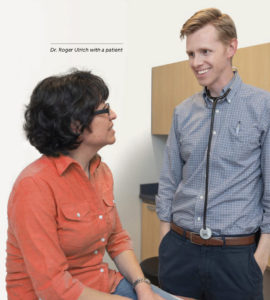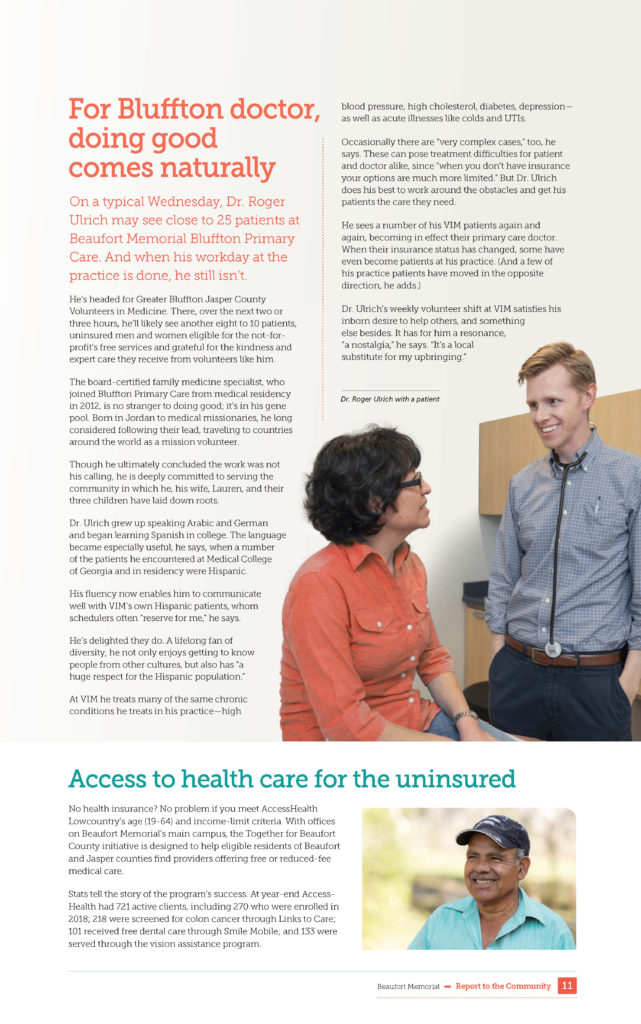
A Beaufort Memorial Hospital Community report was mailed out to everyone in the community. On page 11 there is a wonderful article about BJVIM’s very own Dr. Ulrich with a great mention of the clinic!
You can find the full report here.
On a typical Wednesday, Dr. Roger Ulrich may see close to 25 patients at Beaufort Memorial Bluffton Primary Care. And when his workday at the practice is done, he still isn’t.
 He’s headed for Greater Bluffton Jasper County Volunteers in Medicine. There, over the next two or three hours, he’ll likely see another eight to 10 patients, uninsured men and women eligible for the not-for-profit’s free services and grateful for the kindness and expert care they receive from volunteers like him.
He’s headed for Greater Bluffton Jasper County Volunteers in Medicine. There, over the next two or three hours, he’ll likely see another eight to 10 patients, uninsured men and women eligible for the not-for-profit’s free services and grateful for the kindness and expert care they receive from volunteers like him.
The board-certified family medicine specialist, who joined Bluffton Primary Care from medical residency in 2012, is no stranger to doing good; it’s in his gene pool. Born in Jordan to medical missionaries, he long considered following their lead, traveling to countries around the world as a mission volunteer.
Though he ultimately concluded the work was not his calling, he is deeply committed to serving the community in which he, his wife, Lauren, and their three children have laid down roots.
Dr. Ulrich grew up speaking Arabic and German and began learning Spanish in college. The language became especially useful, he says, when a number of the patients he encountered at Medical College of Georgia and in residency were Hispanic.
His fluency now enables him to communicate well with VIM’s own Hispanic patients, whom schedulers often “reserve for me,” he says.
He’s delighted they do. A lifelong fan of diversity, he not only enjoys getting to know people from other cultures, but also has “a huge respect for the Hispanic population.”
At VIM he treats many of the same chronic conditions he treats in his practice—high blood pressure, high cholesterol, diabetes, depression—as well as acute illnesses like colds and UTIs.
Occasionally there are “very complex cases,” too, he says. These can pose treatment difficulties for patient and doctor alike, since “when you don’t have insurance your options are much more limited.” But Dr. Ulrich does his best to work around the obstacles and get his patients the care they need.
He sees a number of his VIM patients again and again, becoming in effect their primary care doctor. When their insurance status has changed, some have even become patients at his practice. (And a few of his practice patients have moved in the opposite direction, he adds.)
Dr. Ulrich’s weekly volunteer shift at VIM satisfies his inborn desire to help others, and something else besides. It has for him a resonance, “a nostalgia,” he says. “It’s a local substitute for my upbringing.”

